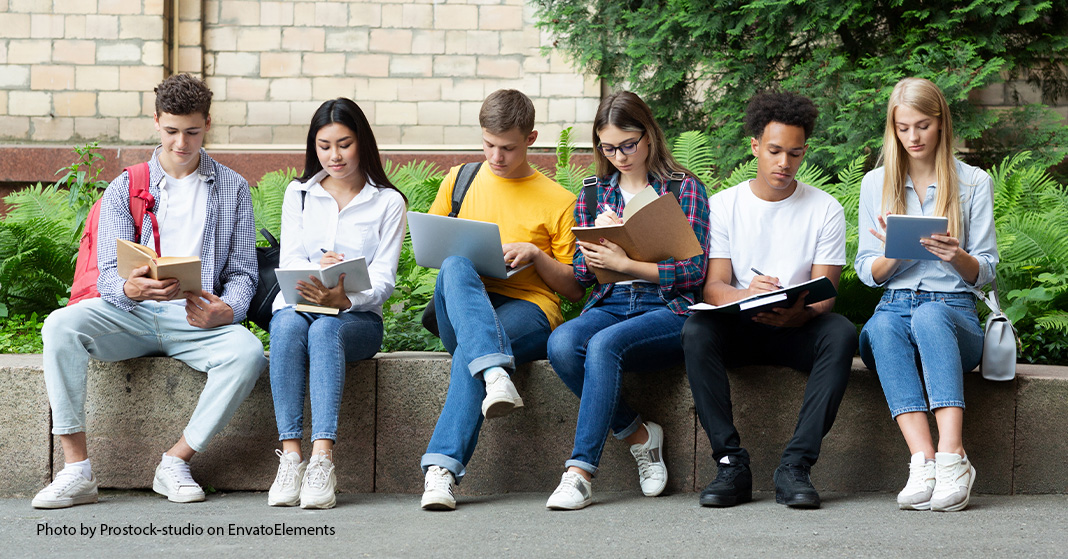
Do you know what one of the most wonderful things about homeschooling is? You have the freedom to be flexible and mobile and do whatever you need to do to ensure that your children will be equipped for their future lives. If you aren’t part of an online academy or a school with strict regulations, then you are free to buy curriculum directly from the curriculum creators. Which means, once those resources are in your home, you get to use them however you like. You can focus on the lessons and skills that you believe will be the most beneficial for your children’s future. You can choose resources that will help them become more effective servants of Christ, their family, their community, and their employer.
So what do you need to teach your kids to be more effective servants in the 21st century? Educators have compiled a list of skills that are vital for students to be successful in their future jobs. Realistically, these 21st century skills (as they are often called) have always been important for preparing students for their lives. However, as people create, innovate, and streamline technology, fewer jobs require mindless drones who just follow instructions. To be effective employees, people will need to be able to create and innovate. The 21st century skills are the skills that most effectively equip students for their future jobs.
When the BJU Press writing teams look at incorporating 21st century skills into our textbooks, they divide them into three categories: the learning skills, the literacy skills, and the life skills. In this post we’ll take a look at the first category of skills.
21st Century Skills: The Learning Skills
These skills are ones that we are always learning and developing, and they’re the ones we’re most familiar with.
Critical Thinking
Critical thinking is using reasoning skills to determine the implications of information. It’s the crucial step between learning facts and understanding why that information is important. For example, students can learn that Archduke Ferdinand was assassinated on June 28, 1914. But then the students should consider how his assassination led to World War I. In our materials, we rely on effective questioning to develop critical thinking. Children need to go beyond just remembering, understanding, and applying information. They also need to be able to analyze and evaluate it, and the process of analysis and evaluation requires them to use their critical-thinking skills.
Creativity
Creativity as a learning skill does not refer to artistry but, rather, creative thinking. Creative thinking is the ability to use what you know in a new situation to solve a problem or to answer a question that you don’t know. We have a tendency to think that creative thinking is only an innate ability, not a skill to be practiced and taught. But kids learn to be creative thinkers by attempting to solve problems without being told how to solve them.
This ability requires confidence and a certain disregard for failure. If you’re going to try proposing new solutions to problems, you have to accept that your solution might not work. And that’s okay. You just try again until something works. Asking your children to define words they haven’t seen or heard before is asking them to think creatively. They’ll need to be able to use what they know about words and word roots, combine it with what they know from the word’s context, and then create a definition in their own words.
Collaboration
Collaboration is the skill of working with other people and learning how to compromise for everyone’s benefit. If you have more than one child, you’re probably already working on developing their collaboration skills. It’s a fact of life for siblings. However, they’ll need to be able to collaborate on a professional level as well as a personal one. Group projects are especially helpful to teach students how to listen to others, share ideas, and encourage each other to be useful, contributing members of a team. Children who work and learn together have a unique advantage over those who always work and learn alone. They’re able to recognize how people can work differently but still be effective. And they’re also able to adjust their own processes to accommodate those who work differently.
Communication
Communication is the ability to clearly and conscientiously express what you need or expect from others. It is not just the ability to speak and talk to others. Many people have the ability to speak but have little skill in expressing their thoughts clearly or conscientiously. Students learn this skill best through practice as well as example. English courses teach grammar and writing skills that ensure children can use the words they need in the way those words should be used, and critical-thinking questions help them practice putting their thoughts and ideas into words. But communication is a skill that also needs to be reinforced daily. You can demonstrate it by showing your children how the things they say can be misunderstood and then helping them to clarify. You can also demonstrate by clarifying your own communication.
These learning skills are just the beginning, but they play a role in the development of some of the other 21st century skills. In a future blog post, we’ll discuss the remaining two categories of 21st century skills: literacy skill and life skills.
Leave a Reply